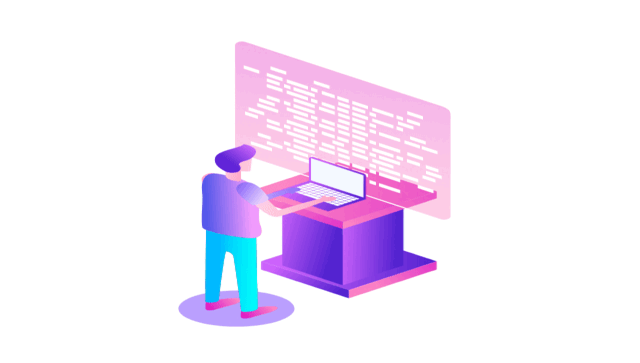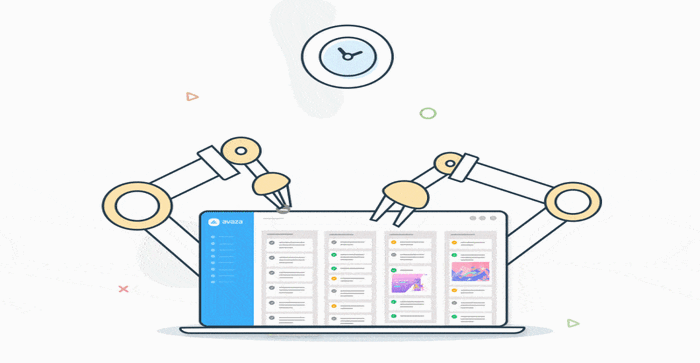Today, organizations cannot even think of planning their growth trajectory in the absence of software development and operations, or in the regular term, DevOps. There is no lie in the fact that every single business from MNCs to startups is undergoing adversities regarding innovation – there is an unbelievable urge to stay abreast with the competition. The DevOps technology has no wonder advanced, but DevOps transformation is indeed an uninterrupted process. This is when AI or artificial intelligence comes into play and automates the DevOps process.
AI is greatly impactful in accelerating DevOps transformation through productivity boost, consolidating requirements management, bug detection, and prioritizing security.
With the help of AI, teams are more able to create, code, and scan software in a more swifter and effective manner. One of the propelling factors behind the evolution of DevOps is artificial intelligence.
What Exactly is AI?
AI is the wonder behind the creation of robots and making them program like humans. An AI developer is the creator behind the dynamic force advancing technology to greater heights. The manifold instances of AI are:
- It is often referred to as how robots and machine prompts human intelligence.
- From healthcare to banking, AI is omnipresent
- With a robust AI structure, more human-like tasks are achieved
- With the help of AI, chatbots are able to perceive consumer problems and resolve the same
Does AI Help in DevOps Transformation?
AI technology is instrumental in amalgamating into the system for boosting performance, and DevOps can be defined as a business-driven approach to delivering software, technically both are interrelated. To explain it better, the DevOps teams perform by testing, coding, releasing, and monitoring software in a more adept manner with the incorporation of AI.

The uses of AI software can greatly heighten DevOps productivity and performance by switching on the fast advancement and operation cycles and offering an engrossing user interface.
How is AI Implemented in DevOps Transformation?
From having a boost in automation to quick resolution of glitches, AI has significantly helped DevOps. Here are some of the ways AI has greatly recast DevOps transformation. Get going with the below pointers.
1. Software Testing
Testing and software generation processes are made straightforward in DevOps implementation by AI. Quite a vast amount of data is generated with the help of functional testing, user acceptance testing, and regression testing. Artificial intelligence is beneficial in decoding the data structure accumulated by producing the result. This also helps recognize mediocre coding practices answerable for plentiful mistakes.
2. Boosted Data Access
One of the most common critical issues encountered in the DevOps sphere is the lack of unrestrained access to data. DevOps transformation is implemented when AI releases data from the stronghold of the organizational silos for big data categorization. With the implementation of the medium, the collation and arrangement of data from multiple sources are achievable.
3. Augmented Automation
This is probably the most highlighted factor where the positive effect of AI on DevOps transformation can be observed. How does the transformation happen? AI immensely lessens the hard work involved in human engagement and increases the automation quotient. Different types of tests like regression testing, functional testing, and user acceptability testing can be swiftly dealt with, with the help of testing platforms.

4. Punctual Signs
The effect of AI on the transformation can be noticed in the timely notifications occurring in DevOps. It is necessary to have timely alerts for the speedy recognition of flaws. Quite often alerts come in an abundant count and all of them are marked with similar stringency. This action offers quite some problems for the teams to react to and answer.
AI and ML are helpful in guiding the teams in prioritizing their responses focused on numerous factors like previous behavior, the vehemence of the alert, alert intensity, and the source of the notifications. Both AI and ML develop perfectly handle similar situations when systems are swamped with data.
5. Advanced Execution Efficiency
AI is making a paradigm shift from a dictatorial, and human-based management of analysis to self-governed and independent structures. This is not only necessary for limiting the complexities of analysis can obtain, but also for enabling a certain grade of adaptation that has previously been not feasible.
6. Rapid Failure Forecasting
A single failure in the DevOps implementation will dial down the whole process by slowing them down. The model of ML develops an easier approach to predicting a particular error focused on data. Artificial intelligence has the capability of witnessing indicators normally not witnessed by humans. With such early predictions, it becomes way too convenient for the teams to recognize and resolve the issues.
7. Adept Resource Management
When it comes to resource management, artificial intelligence greatly manages it. It offers the required capacity to automate routine and ongoing repetitive tasks. With the evolution of AI and machine learning development services, the sphere and complications related to automating tasks escalate and humans will be liberated to concentrate more on the innovative front.
DevOps transformation has certainly gained the limelight all through these years. With the incorporation of AI, the DevOps team is able to immediately detect issues and also redress them swiftly. The collaboration between the two is quite robust and that has led to the seamless delivery of projects. Not everyone will be able to perceive the interrelation between these two, if you are one of them, simply contact Algoworks. You will be guided comprehensively throughout your process by noteworthy and experienced employees.
About Us: Algoworks is a B2B IT firm providing end-to-end product development services. Operating chiefly from its California office, Algoworks is a leading DevOps consulting company which enables continuous delivery pipeline across the cloud platforms for faster time-to-market at reduced costs. The company’s key Salesforce Services include: Amazon Web Services, Google App Engine Services, Windows Azure, CI/CD Automation and Serverless Computing . For more information, contact us here.












